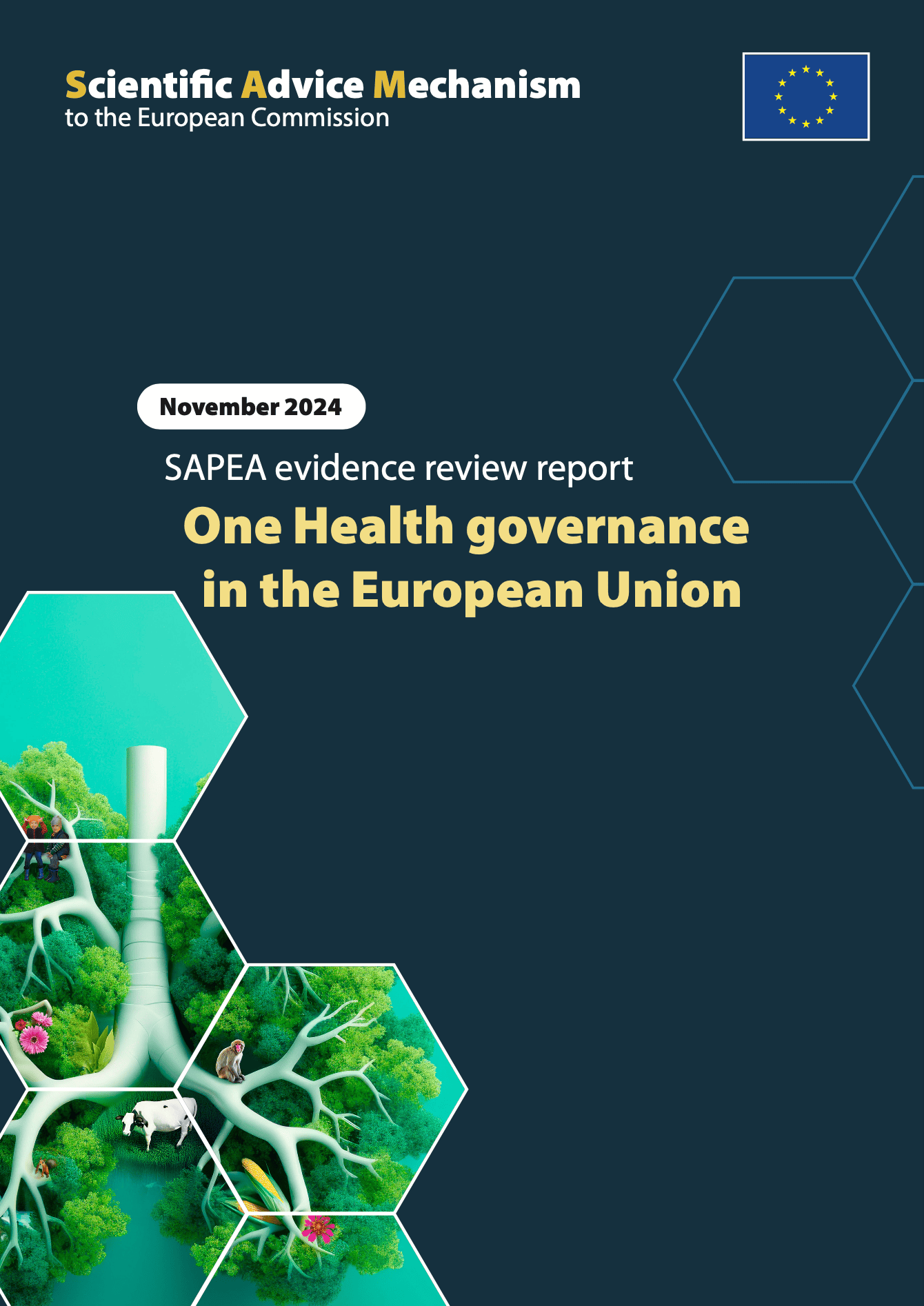This integrated approach is known as 'One Health'. There is strong scientific evidence for the connections themselves, and for the benefits of applying a One Health approach to policymaking in all the areas affected, from health systems and food production and safety, to zoonotic diseases, antimicrobial resistance, neglected infectious tropical diseases and the environment.
Applying a One Health approach will also be essential for the United Nations Sustainable Development Goals to be achieved.
Some European countries are already applying One Health principles in their own policymaking. At EU level, major policies that already fit with this approach include:
- General Union Environment Action Programme to 2030 (8th EAP)
- Zero Pollution Action Plan
- Animal Health Law
- Strategy on Climate Change
Other EU policies would benefit from a greater emphasis on One Health, especially in food and agriculture, where a paradigm shift is needed towards more ecologically, socially and economically sustainable systems. These policies include:
- European Green Deal
- Farm-to-Fork Strategy
- Plant Health Law
- Habitats Directive
- Biodiversity Strategy
- crisis preparedness legislation
To put this into practice, the EU needs more integration between different policy areas both within the European Commission and among European institutions, supported by strong political leadership.
The EU should also play an active role in regional, local and global efforts to develop more integrated policies. Europe should promote the sharing of best practice between governments and stakeholders, and the inclusion of a One Health perspective in education, professional training, and public awareness.
Europe must also expand its surveillance and monitoring systems, which currently have a medical focus, to detect emerging threats across species and environments, where near real-time information is essential. Effective monitoring requires both qualitative and quantitative performance indicators, which in turn requires a clear understanding of the types of data that should be monitored and how to collect and standardise them.
Finally, a review of existing scientific evidence points to research gaps in the cost-effectiveness of individual policy interventions related to One Health, as well as a thorough understanding of the relationships between mental health, physical health, and social conditions. More interdisciplinary research is also needed into relevant technological innovations, and into human behaviours that affect One Health, such as wildlife trade, farming practices, water management, and vaccination acceptance.


























